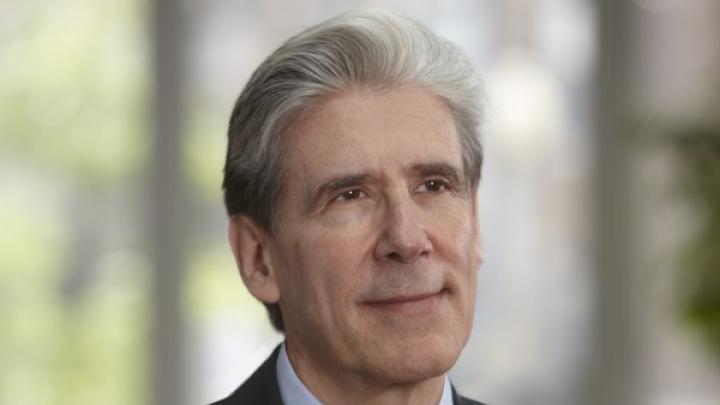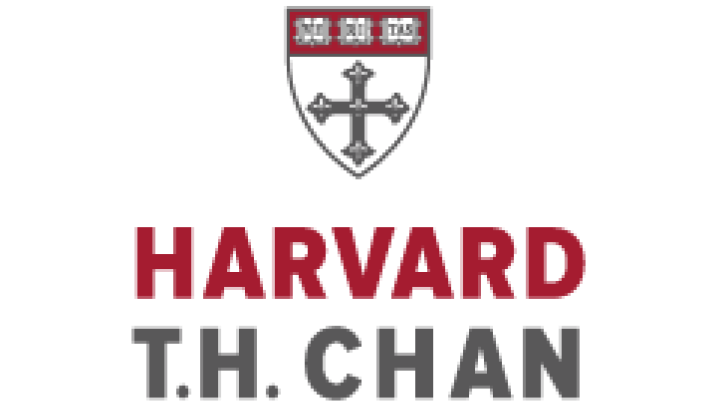Julio Frenk, who became dean of the Harvard School of Public Health (as it was then known) in January 2009, has been appointed president of the University of Miami (UM), succeeding Donna Shalala, who announced her plan to retire last September. UM made the announcement shortly after noon during a live webstreamed event with, appropriately, potted palms by the side of the stage. A late-March report from the chair of the search committee had indicated that four final candidates were being considered. According to the Miami Herald, which reported the pending appointment this morning, Frenk would assume the university presidency on September 1.
Frenk leaves his school in an enviable position: as a result of a $350-million gift of unrestricted endowment funds made last year, for which it has been renamed the Harvard T.H. Chan School of Public Health, the public-service-oriented institution can pursue its other, programmatic capital-campaign objectives with confidence that its finances overall are far more robust than it imagined. At the announcement of that transformative gift, Frenk outlined the school’s objectives as addressing four global health threats:
- Old and new pandemics, ranging from underwriting basic research on malaria, to exploring innovative institutions and control measures, to understanding emerging diseases like the current Ebola crisis in western Africa
- Harmful physical and social environments, from air and water pollution to gun violence, tobacco use, and diet- and nutrition-related problems
- Poverty and humanitarian crises, from war-caused displacement of populations to natural catastrophes, and including efforts to advance health as a human right
- Failing health systems, and the related challenges of healthcare affordability, efficiency, and accessibility
He had emphasized each during the school’s campaign launch in the fall of 2013; it aims to raise $450 million (apart from the unanticipated Chan naming gift) for research and innovation support, professorships, financial aid, infrastructure for the campus, and major revisions in education and pedagogy.
President Drew Faust said in a statement:
Julio has energized the Harvard Chan School with his extraordinary devotion to how universities can enhance the health of populations around the world. He has combined high ideals with clear-eyed pragmatism, scientific rigor with humane compassion, all in the service of improving the understanding and practice of global health in the 21st century.
It’s clear from their choice that the University of Miami’s trustees share Julio’s own qualities of wisdom and foresight, and that they have discovered in him the remarkable leadership capacity and vision with which he has graced Harvard these past six years. We thank him for his service to Harvard, to higher education, and to human health.
She expects to appoint an interim dean, and to initiate a search for a successor dean.
Frenk brings to Miami not only his recent decanal experience but also prior service as Mexico’s minister of health from 2000 to 2006. In this, his trajectory has one parallel to Shalala’s: she served as U.S. Secretary of Health and Human Services under President Bill Clinton (and had previously been president of Hunter College of the City University of New York and chancellor of the University of Wisconsin-Madison).
A Harvard Magazine profile of the new dean noted his ties to Harvard as a visiting professor, where his work on the burden of disease in Mexico led to his ministerial appointment, and formed the basis for the national health insurance initiative he oversaw there. As dean, he was an energetic advocate of overhauling teaching and learning, for which he secured crucial funding, and a strong representative of the University’s interests in global health locally and around the world (for example, at the Harvard Campaign “Your Harvard” events in Mexico City last October).
In his welcome message to visitors to the school’s website, Frenk describes public health as “a crossroads where multiple dimensions intersect: biology and society, individual and population, evidence and ethics, analysis and action. The School community, in collaboration with partners from the rest of Harvard University and from all over the globe, is in the process of building a truly integrative framework to better address these complexities.” He called upon the school, and its friends at large, to further its “heritage as stewards of public health” at the dawn of
a new era fueled by four simultaneous revolutions: in the life sciences; in information and communication technologies; in systems thinking, allowing us to comprehend and transform complexity; and finally, in the human rights revolution, which provides the ethical foundation for so much of our work. We need to rise to the challenges and harness the potential of these developments in an increasingly global world to realize the fundamental right to health for every human being. No other school is as well positioned as ours to lead this new era of public health. Together our scholars, students, staff, alumni, friends, and partners will help to shape public health in the 21st century.
That mission and vision now fall to a new leader for the school. For President Drew Faust, identifying Frenk’s successor means a further renewal of her council of deans. Searches are under way, and expected to conclude soon, for successors to Harvard Kennedy School dean David Ellwood, departing at the end of the academic year; and a permanent dean for the School of Engineering and Applied Sciences, following the departure of Cherry Murray at the end of 2014 (Harry R. Lewis is serving as interim dean).
Ordinarily, that prospect would be discomfiting in the middle of an enormous fundraising campaign; but with $5 billion pledged in just the first 15 months of the public campaign, and especially in the case of the fortunate public-health school, there is in this case a bit of breathing room.
Read the University of Miami news announcement here. Read Harvard's announcement here.









